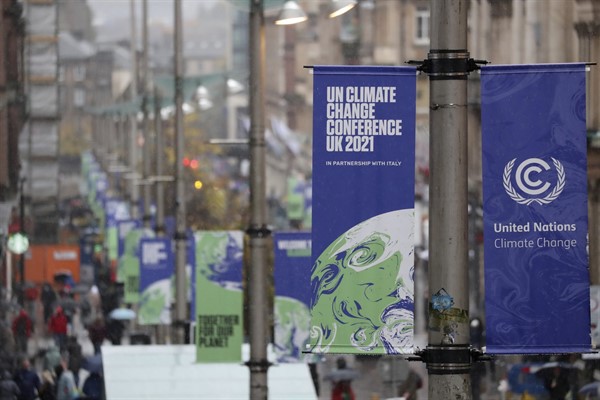This is the web version of our subscriber-only Weekly Wrap-Up newsletter, which gives a rundown of the week’s top stories on WPR. Subscribe to receive it by email every Saturday. If you’re already a subscriber, adjust your newsletter settings to receive it directly to your email inbox.
Starting Sunday, all eyes will be on Glasgow, where the United Nations Climate Conference will be taking place for the next two weeks. The COP26 summit has been described as the world’s last chance to head off the worst-case catastrophic scenarios projected by climate scientists. According to the most recent report by the Intergovernmental Panel on Climate Change, the world must achieve net zero carbon emissions by 2050 in order to keep the average rise in global temperatures to 2 degrees Celsius. That will not prevent an increase in the number of extreme climate incidents, like the floods and wildfires witnessed around the world this past summer, between now and then. But it will mitigate the kinds of runaway temperature rises that could trigger even more disastrous consequences.
But to achieve the goal of net zero by 2050, the world’s major emitters will have to dramatically ramp up their efforts to reduce emissions. The European Union has drafted an ambitious emissions-reduction plan to put its net zero pledge into practice. And under President Joe Biden, the U.S. has reentered the Paris Agreement and made ambitious pledges to reduce its emissions. But so far, neither Washington nor Brussels has adopted any concrete measures to do so, and the domestic politics for drafting and implementing the necessary legislation remains challenging. As for China, its net zero by 2060 pledge has been criticized as too little, too late. Meanwhile, developing countries continue to wait for the $100 billion in annual development funding pledged by wealthier countries to help them adopt low-carbon alternatives to fossil fuels and adapt to the effects of climate change already on display.

